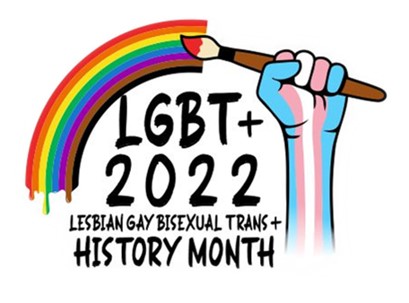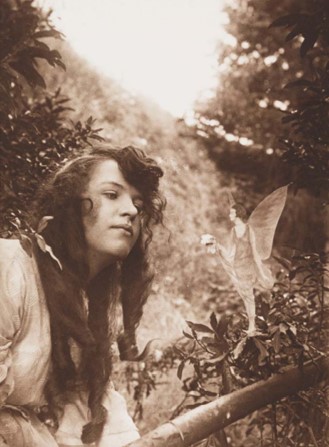
Her
http://www.youtube.com/watch?v=WzV6mXIOVl4
There are so many good films out at the moment. However, after seeing Her I think Spike Jonze is doing something new. I have always thought there was a lot of potential for exploring the impact modern technology has on the human psyche but had never found it done in a satisfying way. I found my filmic encounters with the future too sci-fi (Matrix) or unrealistic in approach (Minority Report) or not giving space for any real depth and complexity to emerge leaving the content superficial and dissatisfying (The Social Network). I was also too vague in my own interests to tackle the topic myself so it was really exciting to see Jonze get to the heart of underlying issues such as loneliness, sharing lives, fear of commitment and intimacy. Unlike other films I have seen Her enabled me to envisage the future just like it was portrayed in the film. People walking around oblivious of each other and talking to the tiny computers in their ears didn’t seem out of place in this world, in fact I was convinced that it could be what’s ahead for us.
Theodore is getting divorced. His ex-wife accuses him of not being able to handle real emotion and relationships. It is in this context that he falls in love with his Operating System (once you know it is voiced by Scarlett Johansson it becomes more believable.) Set some unspecified time in the future OS’s are not like we know them; they are more like a human without a body than a computer. They have evolved beyond their programming and have developed feelings and are beginning to forge relationships.
When someone has an OS they automatically start sharing their lives with them. At all times and at the touch of a button the OS is available for their demands and is ‘there for them’. Theodore’s OS is called Samantha. She knows all the contents of his emails, his work schedule and by default knows all about him. She knows about his break-up and his ambitions and his passions and his loneliness and all his modern malaise. She knows how to make him laugh, to ask good questions and to help him feel alive again. They share new experiences together as he carrys her around in his pocket and talks to her everywhere, like some omniscient being living in his head. It’s actually quite hard to tell where his thoughts end and she begins at times. In a sense they are locked into a parallel and hyper reality with each other and disconnected from the ‘real’ world.
In the film people’s real relationships are breaking down and they become more and more dependent on their machines.
What this film does so well is challenge what we consider a real relationship to be. We start to believe that what Theodore and Samantha have is more real than the miscommunications and disconnections we all face in mortal relationships. Who needs a body? So what if they are experiencing love?
As I jumped on the last tube with everyone face down in their iPhones it made me wonder what the future holds for our relationships. With the ease and self-oriented nature of social networking, online dating etc are we slotting our relationships into a culture of convenience and foregoing the connections, and struggles, available to us in the real world?







“are we slotting our relationships into a culture of convenience and foregoing the connections, and struggles, available to us in the real world?”
No for some people its just replacing one set of experiences and connections with another but for other people these modern connections enable people previously isolated and alone to have good quality lives.
Think about being a tetraplegic in the 1950s and now. Then you were fully dependent on the physical nature of interaction or the phone and letters – where you still needed a great deal of help. Now you can create video calls, make blogs and interact with people across the globe – all from your bed of chair.
New technology has freed more people than its enslaved.
I think you make a powerful and convincing point about the impact on the lives of people with disabilities Pete.
I am less convinced by the equation in your final sentence; Sharon’s question is about the impact on the quality of communication and relationships, I am unsure of my response to this (see my comment to JDNS below). However, I think it is only fair to factor in the full life cycle costs of the technology which includes the impact on those producing and un-producing it.
Indeed Gareth – I should have added the word “some” before people as I am clearly seeing things from a rather rich western perspective.
A thought provoking article.
I’ve put an article from Source magazine in the student site which you and others might find interesting Pete. It is here
Hi Pete,
Interesting point and I agree that technology has afforded me opportunities for connection that would otherwise be closed to me. Actually when I had a newborn baby and was stuck at home a lot I set up my blog Photoparley as a way to connect with people and it has been amazing. I suppose I am questioning when it becomes a distraction and knowing when to put those boundaries in place. Like for example I was reading this thread on my way along the river to Tate and I thought to myself I really need to put this away and enjoy the river 🙂
I can relate to your point Sharon, context is indeed key.
“With the ease and self-oriented nature of social networking, online dating etc are we slotting our relationships into a culture of convenience and foregoing the connections, and struggles, available to us in the real world?”
Nah, we ain’t. This is the real world, its got computers and stuff in it – I’ve seen ’em.
Arguably the tone of your comment answers Sharon’s question in a way other than you might have intended JDNS.
I am completely convinced that the affordances of new technologies have widened the possibilities for communication and, specifically for the OCA, the possibilities for learning; one only has to think of the discussions which have included students from China, the UK and the States.
However, I think the nature of such communication and its impact on non technologically mediated relationships are subjects worthy of careful consideration. And our views of what is happening today help us shape how we communicate through artistic practice where we think we might be going.
I read few weeks ago something that Spike Jonze said about technologies, and I scribbled it down because it resonated with me at the time. He said: “I think technology is doing so many things to us […] it’s helping us connect and preventing us from connecting”.
More connected, less connecting, that’s how I personally feel, but I guess it depends only on how we intend to relate to others. And we all have different expectations.
This connected world is so new, maybe we still have to learn.
Anyway, thanks Sharon for this post, I also find this subject really inspiring artistically.
Modern familial groupings show the problems that this film is about. Children no longer group together outside to play wide games, they’ve got their heads down in video games, parents are hooked to Reality TV, communication is kept at a minimum. The main meal of the day is no longer eaten together at a table, but sat in front of the TV or computer, when sharing of daily experiences used to occur and societatl values were imparted to the young. Travel has distanced children from their aging parents as their work takes them ever farther from their geographical roots. Distance from each other and the loss of intimate knowledge of friends makes them strangers when they do meet, they’ve nothing in common anymore.
This all leads to us becoming strangers to one another and loneliness is now at epidemic proportions, even the government has recognised this as a problem and are tasking the NHS to combat it.
Is the film unrealistic, only inasmuch as it shows what is likely to happen if we continue our current trend.
I’ve yet to see the film, but certainly want to after reading your article Sharon! The issues around couples and families becoming distanced from one another through the encroachment of technology is one that certainly seems to be becoming a more widespread concern. We certainly seem to be seeing the encroachment of technology into the ‘lifestyle’ space of society from its previous status as a tool for society.
I’ve found it fascinating that there appears to have been a gradual image-reversal over the past decade, between those who are responsible for the creation of such digital distractions (the geeks/coders) and those in the general public who consume it. Over the past few months I’ve come across a number of coders who seem to be remarkably cultured outside of their work (a pianist, an exhibiting painter and a published writer), which is a world away from the image that group previously held, of the unsociable coder glued to his or her computer desk day and night. I have to wonder if this is down to that ‘inner-community’ having become hyper-aware, through prolonged exposure, of the need for boundaries in life between the ‘real’ world and the digital. I for one try not to engage with anything ‘digital’ in the evenings, after being exposed to so much of it during the daytime at work. It seems to me that the wider society outside of that limited (but growing) clique of originators, are increasingly under-aware of the need for these boundaries.
That would be interesting to know Paul. I also think Big Bang Theory and other popular sit coms are doing ‘geeks’ a favour and fashion etc. I suppose at the end of the day we are all human and can be swayed one way or the other and being away of where it’s good / not good for our personal circumstances is a good thing for anyone to do.
As Catherine refers to, apparently facebook is so uncool for young people – as their parents have just joined up so they can keep track of their kids young people are moving onto other, potentially more scary technology like snap chat 🙂
Yes, go and see it!
It’s certainly a film I’d like to see. I know this is about technology and communication but there are so many ways we can fall in love with voices (remembering OS is the voice of Scarlett Johansson). I’ve certainly almost fallen in love with the voice before I’ve met the person.
There are so many pros and cons of modern communication technology that I certainly wouldn’t want to make definitive statements. My grandchildren use Facebook for example. It’s a good way to communicate with them just on a general basis but also through private messaging as I know that they’ll get them straightaway as they seem to prefer this rather than email. One interesting development recently has been that my oldest grandchildren rarely go on Facebook now and I when I commented on this to one of them she said she preferred to talk to people in real life now. She’s already learned about boundaries and I’m sure that happens to many other people.
My interest in this topic is about the distinction apparently being made between human/human relationships and human/machine ones, and which is more ‘real’ than the other. The Turing Test is of relevance to this debate, being a test of a machine’s ability to exhibit intelligent behaviour indistinguishable from, that of a human. In the fictional world of ‘Her’ the machine Samantha seems to have passed the Turing Test and to have a very close relationship with Theodore, arguably even closer than a traditional face-to-face relationship.
If this is the long term future of such technology, it’s much better than going to the pub and sitting there bored while your mates play with their phones.
I’m going to see the film tomorrow and will tell you what I think!
I thought it was a wonderful film. It has really stayed with me. I thought it spoke mostly of love and how absurd yet tender love can be. Who hasn’t felt the hopelessness of falling in love with an actor, singer or sportsperson? Of course, they are unattainable but that love can seem so real even though others describe it as infatuation. As there is no real communication the imagination invents it in daydreams. I once ‘fell in love’ with a fictional character from a book. It was short lived but felt very real at the time! Some people fall so deeply in love with their pets that they want to die when their pet has died. So, falling in love with a voice on a computer is no more absurd. I found the film extremely touching and happy and sad at the same time.
By the way, did anyone else think that Theodore looks just like Leonard from The Big Bang Theory?
From a purely filmic sense the cinematography is beautiful – the film touches on a topic that although currently not possible is only a whisper away from being real. This is where great sci-fi works, things that are being talked about now which are only a minute or two away from us. So many parallels with modern life I wanted to watch the entire film as I know that mankinds future will be laid bare for us all to see.